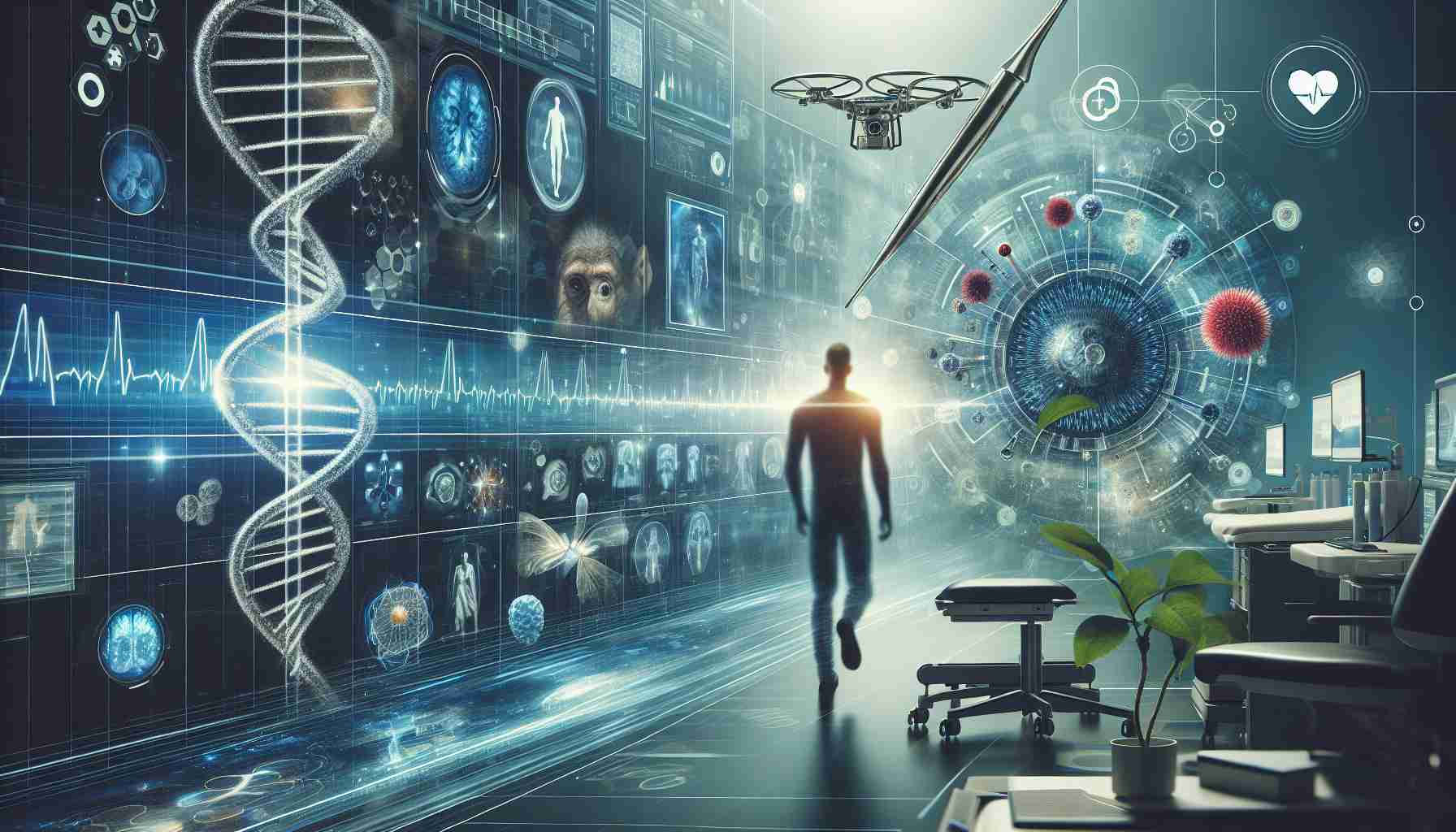Transforming Health with Technology
The health sector is witnessing a radical shift as technological investments reshape disease prevention, diagnosis, and treatment. Leading tech companies are significantly boosting their ventures into healthcare, developing innovative tools fueled by artificial intelligence (AI), machine learning, and cloud solutions to tackle current and future healthcare challenges.
Fernando Valiño, the Regional Government and Health Director at Microsoft Spain, emphasizes the company’s dedication to regulatory compliance, interoperability, and ethical AI usage in health innovations. They are notably advancing diagnostic tools, AI-based medical assistants, and collaborative research projects, ensuring that solutions adhere to specific regional regulations, including those within the pharmaceutical sector.
One standout initiative is Microsoft’s EU Data Boundary, safeguarding client data by storing it within the European Union and ensuring compliance with robust data protection standards. Ethics in AI use is prioritized, advocating for transparency, traceability, and engagement with healthcare professionals to secure data integrity.
In cybersecurity, Microsoft excels with solutions like Copilot for Security, enhancing threat detection through generative AI capabilities. Their ongoing projects, such as InnerEye, employ state-of-the-art machine learning to analyze 3D medical images, emphasizing accessible AI training for healthcare institutions.
The future envisions AI dramatically improving healthcare delivery, promoting disease prevention, enhancing diagnostic accuracy, and enabling professionals to focus more on patient interaction, all while optimizing resource usage. With these advancements, technology is not just enhancing healthcare; it’s revolutionizing it.
Revolutionizing Healthcare: The Tech Wave Transforming Patient Care
The healthcare landscape is undergoing a remarkable transformation driven by technological innovations and the integration of artificial intelligence (AI) and data analytics. Various tech firms, particularly giants like Microsoft, are redefining how medical services are delivered, emphasizing efficiency, accuracy, and compliance.
Key Innovations in Healthcare Technology
AI and Machine Learning Applications
AI and machine learning applications are at the forefront of healthcare innovation. These technologies are being harnessed for:
– Predictive Analytics: Leveraging big data to forecast disease outbreaks and patient needs.
– Personalized Treatment Plans: Utilizing genetic information and lifestyle data to customize therapies for individual patients.
Telemedicine Solutions
The rise of telehealth has revolutionized patient access to healthcare. With secure video conferencing and e-prescription capabilities, patients can receive care from the comfort of their homes. This trend is particularly significant in the wake of the COVID-19 pandemic, as healthcare systems seek to reduce in-person visits while maintaining quality care.
Pros and Cons of Technology in Healthcare
Pros:
– Improved Access: Patients in remote areas can connect with specialists through telemedicine platforms.
– Enhanced Efficiency: Automation of administrative tasks reduces paperwork and streamlines operations in healthcare facilities.
– Better Patient Engagement: Through apps and wearables, patients can monitor their health statistics and take proactive measures.
Cons:
– Data Privacy Concerns: As more health data is digitized, ensuring patient privacy becomes paramount.
– Technology Dependence: Over-reliance on technology can lead to challenges in the absence of technical infrastructure.
Current Trends and Future Predictions
– Wearable Health Tech: Devices such as smartwatches and fitness trackers are not just for fitness; they now monitor vital signs and detect irregularities, pushing preventive healthcare to the next level.
– Integration of IoT: The Internet of Things (IoT) is enhancing how medical devices communicate and operate, enabling better patient monitoring and management of chronic conditions.
Limitations and Security Aspects
While the advancements are promising, limitations such as the digital divide—where some populations lack access to essential technologies—persist. Ensuring that these innovations are equitably distributed will be an ongoing challenge. Furthermore, cybersecurity remains a critical concern as healthcare systems face increasing threats from data breaches.
Market Analysis and Insights
The global healthcare technology market is projected to continue its robust growth, with an emphasis on AI-driven solutions. Companies are investing heavily in R&D to innovate in areas like diagnostic imaging and robotic surgery.
How to Adapt to Healthcare Technology
1. Stay Informed: Regularly update yourself on the latest technologies in healthcare.
2. Invest in Training: Healthcare professionals should undergo training to make full use of these innovations.
3. Collaborate with Tech Experts: Form partnerships with technology firms to enhance healthcare delivery systems.
For more insights into the transformative power of technology in healthcare, check out Microsoft’s dedicated healthcare solutions.
The intersection of technology and healthcare is reshaping patient care and diagnosis. As we look toward the future, embracing these innovations will be crucial for healthcare providers, patients, and tech developers alike.
